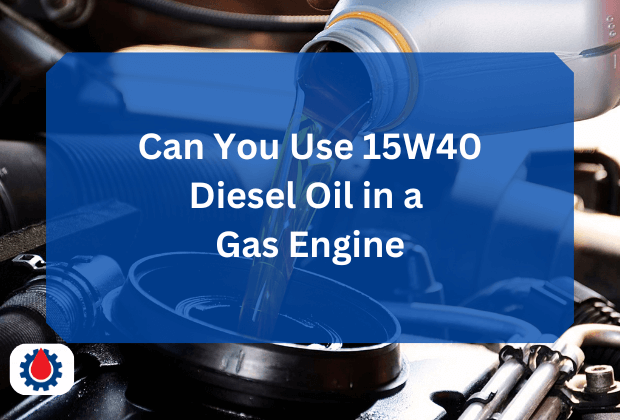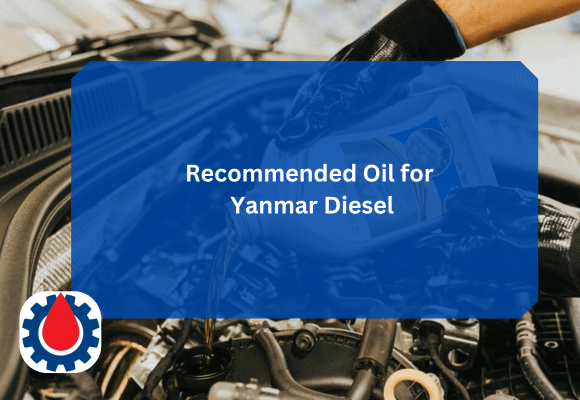Many vehicle owners wonder whether it’s safe or practical to use 15W40 diesel oil in a gasoline engine. While 15W40 is a heavy-duty oil commonly used in diesel engines due to its robust additives and viscosity, some gas engine users consider it for its potential durability and protection.
In this post, we’ll explore whether 15W40 diesel oil can be used in gas engines, its advantages, potential risks, and when it might be appropriate.
Can You Use 15W40 Diesel Oil in a Gas Engine
Yes, 15W40 diesel oil can be used in a gasoline engine in some cases, but it’s not always recommended. Diesel oils, like 15W40, are formulated for diesel engines, which operate under higher compression and soot production. They contain higher levels of additives, such as detergents and anti-wear agents, which can benefit older or high-mileage gasoline engines.
However, modern gasoline engines, especially those with turbochargers or requiring synthetic oils, may not perform optimally with 15W40 due to differences in viscosity and additive packages.
Key Considerations
Using 15W40 diesel oil in a gas engine may void warranties if the oil doesn’t meet the manufacturer’s specifications. It’s best suited for older, non-turbocharged gasoline engines or heavy-duty applications like trucks or equipment.
For modern vehicles, lighter viscosity oils (e.g., 5W30 or 0W20) are often required for fuel efficiency and performance. Consult a mechanic or refer to your vehicle’s manual before switching to 15W40 diesel oil.
Related Can I Use Engine Restorer and Triax Oil Additive Together
Understanding 15W40 Diesel Oil and Its Composition
15W40 diesel oil is a multi-grade oil commonly used in diesel engines, particularly in heavy-duty vehicles like trucks, buses, and construction equipment.
The “15W” indicates its viscosity at low temperatures, making it suitable for cold starts, while the “40” reflects its viscosity at operating temperatures, providing robust protection under high heat and load. Diesel oils are engineered to handle the unique demands of diesel engines, including higher soot, sulfur, and combustion byproducts.
They typically meet standards like API CJ-4 or CK-4, which emphasize durability in high-stress environments. These oils contain higher levels of zinc dialkyldithiophosphate (ZDDP) for anti-wear protection and detergents to manage soot, which can benefit gasoline engines with flat-tappet camshafts or older designs.
However, gasoline engines have different needs. Modern gas engines often require oils meeting API SN, SP, or ILSAC GF-6 standards, which prioritize fuel economy, emissions control, and compatibility with catalytic converters. 15W40 diesel oil may be too thick for engines designed for thinner oils like 5W20 or 0W30, potentially reducing fuel efficiency and causing sluggish performance, especially in cold climates.
Also, diesel oils may lack specific additives optimized for gasoline engines, such as friction modifiers for smoother operation. Using 15W40 in a gas engine that requires synthetic oil could lead to inadequate lubrication, increased wear, or sludge buildup over time.
Related Can You Mix Different Weights of Oil(Hack or a Disaster)
When Is It Safe to Use 15W40 in a Gasoline Engine?
Using 15W40 diesel oil in a gasoline engine is generally safe for older vehicles or those with high mileage, particularly if the engine is a pushrod or flat-tappet design. These engines benefit from the high ZDDP content in diesel oils, which reduces wear on components like camshafts and lifters.
For example, classic cars, vintage trucks, or small engines in lawnmowers and generators may tolerate 15W40 well, especially in warm climates where cold-start viscosity is less critical. Some owners of high-mileage gasoline trucks also use 15W40 to combat oil leaks or burning, as the thicker viscosity can help seal worn gaskets.
However, caution is needed for modern gasoline engines, especially those with variable valve timing, turbochargers, or direct injection. These engines often require low-viscosity, synthetic oils to maintain efficiency and protect sensitive components.
Using 15W40 in such engines could lead to poor oil flow, reduced fuel economy, or even engine damage over time. Always verify the oil’s API rating and ensure it meets your engine’s requirements. For instance, some 15W40 oils are dual-rated for both diesel (CJ-4) and gasoline (SN) engines, making them safer for crossover use.
Related Can You Mix Engine Oil Brands(Read This Before Mixing Oil)
Risks and Alternatives
The risks of using 15W40 diesel oil in a gas engine include warranty voidance, reduced fuel efficiency, and potential long-term wear in engines not designed for its viscosity.
Manufacturers like Ford, GM, or Toyota specify oils for their engines to meet performance and emissions standards, and deviating from these can affect engine longevity.
Additionally, diesel oils may not provide optimal protection for gasoline engines in extreme conditions, such as frequent short trips or high-RPM driving.
If 15W40 isn’t suitable, consider alternatives like 10W40 or 20W50 for older gasoline engines, or stick to the manufacturer’s recommended synthetic oil for modern vehicles. High-mileage oils with seal conditioners and extra detergents are also good options for aging engines.
Related Engine Oil Change Soon(Here’s How Long You Can REALLY Wait!)
Final words
While 15W40 diesel oil can be used in some gasoline engines, particularly older or heavy-duty ones, it’s not a one-size-fits-all solution. Prioritize your engine’s specifications and consult professionals to avoid costly mistakes.




